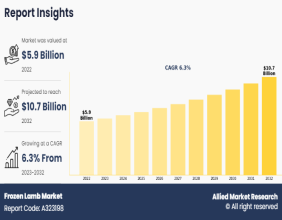Summary
- Technology has immensely aided in dealing with mental health issues that have surged this year.
- The readily available telehealth services have made counselling/therapy more approachable.
- 2020 has witnessed a significant rise in the adoption of technology to address mental health challenges.
- Prescription video games, digital symptom tracking, AI and VR are some of the innovative approaches to tackle mental health challenges, seen this year.
The year 2020 has been a difficult one for people across the world. With the pandemic spewing hellfire globally and stringent lockdowns in place, many people started facing mental health issues.
Being locked away at home, people were under stress concerning the health and safety of loved ones and their financial stability. Everything added to the mental strain, taking people to dark places, making it tough for them to keep their calm.

Image source: Shutterstock
Thankfully, a range of virtual counselling methods came into play during the lockdown. The virtual counselling methods play a great role in minimising the stigma that comes with seeking help regarding mental health.
Telephonic conversations: Being able to communicate with another person is one of the fundamental requirements of the human brain. The lockdowns saw a major surge in doctor consultations over call, as per the reports. The availability of doctors without risking wellness by stepping out, has made more and more people interested in seeking help.
Video conference: Several apps helped patients speak to their doctors over video calls, and this has been nothing short of a game-changer. More and more people became aware and open to the idea of asking for help during this course of time. Studies revealed that many people poured their heart out regarding mental health concerns such as substance abuse and depression, and in turn, found solace through counselling via video calls.
GOOD READ: How sound is Australia’s mental health insurance system?
Different models for Telemental Health
Of late, a variety of formats for providing mental health care have been developed. Let us have a look:
Apps: These could be the ones most widely used. Patients can select from a list of doctors based on their credibility and charge per session etc.
Centralised hub: This includes a central source which can connect you with your mental healthcare provider. In case, your healthcare provider is in a different city, you might still need to travel there.
Direct to consumer method: In this, mental healthcare providers communicate directly with the patients via telehealth services.
Integrated care program: This is where a primary care office works in collaboration with mental health providers.

Telehealth has played a vital role in tackling medical health challenges (Image Source: © Kalkine Group 2020)
Concerns that need to be addressed
In the past, several concerns such as privacy, crisis management, and infrastructure have been reasons for limited entry in the telehealth market, more specifically, the telemental health area. With advanced technology being more readily available now, more and more providers are able to meet HIPAA standards. However, several security issues need to be addressed. For instance, what should be one’s course of action if a patient at a remote location has suicidal tendencies?
The American Psychiatric Association and the American Psychological Association have formal guidelines for the best practices in these areas of concern. There are still concerns about accessibility, especially in remote areas with ethnic groups. Programs such as FCC help by providing smartphones for people with economic disparity.
Since a federal statute does not regulate virtual health services, there is a lot of disparity in the payment received by service providers online. There has been an increase in the predicted cases for depression during the COVID-19 crisis. A study in India revealed that there are 150 million people in the country in need of mental health care. The figures across the globe are equally alarming. The taboo related to mental healthcare and awareness needs to be addressed primarily.
It is okay not to be okay, indeed!
With each passing day, it gets increasingly essential to normalise the need for mental health services. Mental health is as important as physical health and there is a dire need to spread awareness about the same. People need to be open to discussing their mental health problems with caregivers, taking that first step towards seeking help, which can only happen through constant conditioning.
There is a need to educate young minds about the importance of mental healthcare so that people stop shying away from accepting that they have a problem and seek help from professionals at the right time.
Furthermore, it is essential to ensure that online service providers are given a fair remuneration for their time and expertise. An equalisation across the sectors needs to be established, so that no one is underpaid for the critical task of rendering mental care to patients in dire need.




